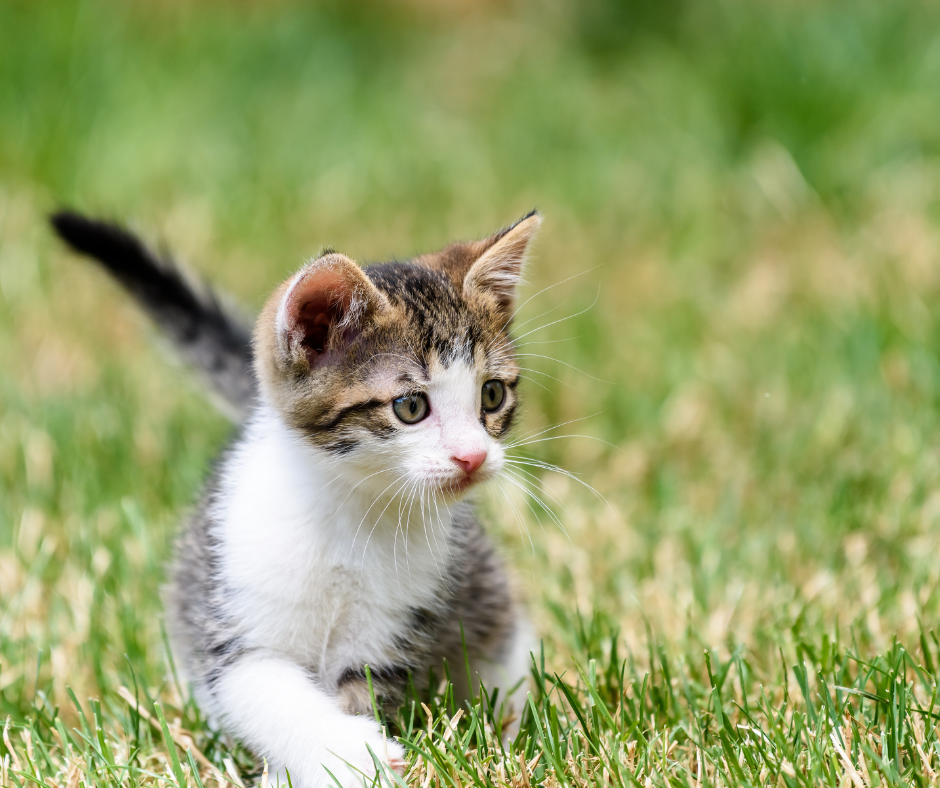So, you’ve added a new furry member to your family? How exciting! Bringing a new kitten home is so much fun- but there are a few important steps to take to make sure your new fluffball settles in as well as possible 🐱. And to make things nice and simple, we’ve written this article to cover all the things you can do to help your kitten feel settled and happy in their new abode. Read on for our tips on introducing a new cat to your home.
Being prepared before they arrive
Whether you have a new kitten or a new cat, always bear in mind that moving home can be stressful for cats and kittens as it’s often a huge change for them. Because of this, it’s worth being as prepared as possible for your feline’s arrival, by considering things such as kitten or cat food, toys and even what type of cat litter to use! And if you want to read more about preparing for a brand-new fluffball, be sure to check out our new kitten checklist article which will tell you about everything you’re kitten will need to feel at home.
Giving them time to settle in
Once in their new house, you may find that kittens or cats want to stay in their cat carrier or hide away at first, which is completely normal behaviour for cats entering a new home, as new things and experiences can be a bit daunting for moggies.
If you find your new kitten is hiding, make sure you allow them to come out in their own time and give them plenty of opportunity to adjust to- and explore- their new surroundings. You will probably find that your new cat is very slow and cautious at first and carefully investigates every nook and cranny of their new home before they gradually become more comfortable and relaxed.

New kitten not eating
Don’t expect your new cat or kitten to eat straight away, as moving to a new home can make them feel a bit nervous, even if you are doing everything you can to help them get settled. By giving your cat time and space and you will often find that they slowly start to eat as they become more relaxed. If your cat or kitten isn’t eating, it’s important to keep monitoring them closely. This is especially important in kittens because they need to eat more regularly than adult cats, and can easily become dehydrated if they aren’t eating enough. Therefore, if you have any concerns about your cat or kitten not eating enough, or if it’s been over 24 hours since they last ate, always contact your vet for advice.
Litter training
When you are introducing a new cat, it is also important to get them used to their litter tray- and you sometimes need to try out a few different types of litter to find one they are happy with. And, unless your kitten has already been litter trained, you will also need to teach them how to use a litter tray. You can read more about how to litter train a kitten here.
It’s also a good idea to regularly check your new cat’s litter tray to check for any signs of soft, watery or bloody faeces- and again, if you have any concerns speak to your vet.

Introducing your cat to the outdoors
It’s essential to keep cats and kittens inside until they are up-to-date with their vaccinations as this helps to reduce their risk of catching infectious diseases that they can pick up by going outside or interacting with other cats. And even if your cat or kitten has been vaccinated, it’s still a good idea to keep your new pet indoors for at least 2-3 weeks to give them a chance to get used to their new surroundings.
When you do let your moggie out, it’s best to keep them in your garden at first and only let them out for set time-periods when you’re able to easily keep an eye on them- as you don’t want them to stray too far and get lost (you can read more about kitten proofing your garden here ).
Once you’re happy that your cat is more familiar with their surroundings, you can then gradually increase the amount of time that you let them out throughout the day- but be sure to do this gradually.
Keeping your cat in at night
It’s generally not advisable to let your cat out at night, as cats natural hunters and so become a lot more active when it gets dark. High levels of activity at night-time can be a problem as your cat may be more likely to run into the road, and it will be tricky for drivers to spot them, meaning they will be more likely to get hurt in a road traffic accident.
And it’s definitely not a good idea to let your kittens out at night, as younger animals are a lot more vulnerable, and will also get lost more easily.
Socialising your cat
Once your cat has had time to settle in and is starting to feel more confident, it’s important to engage with them through play and also by slowly getting them used to being held. This is called socialisation and is especially important for kittens as it helps them to grow into happier and more sociable cats.
It’s also useful to gradually get your kitten used to having their ears and paws checked from a young age, as this can make future vet visits less stressful. You can do this by gently touching their ears and holding their paws.
While socialisation can be really good for both cats and kittens, it’s important to remember that not all cats and kittens are naturally sociable, so always go at your cat’s own pace and if they seem scared, or aren’t wanting to interact with you, make sure you give them plenty of space.
Now you know all about introducing a new cat to their home, have a read of our article on introducing a new kitten to an older feline.


